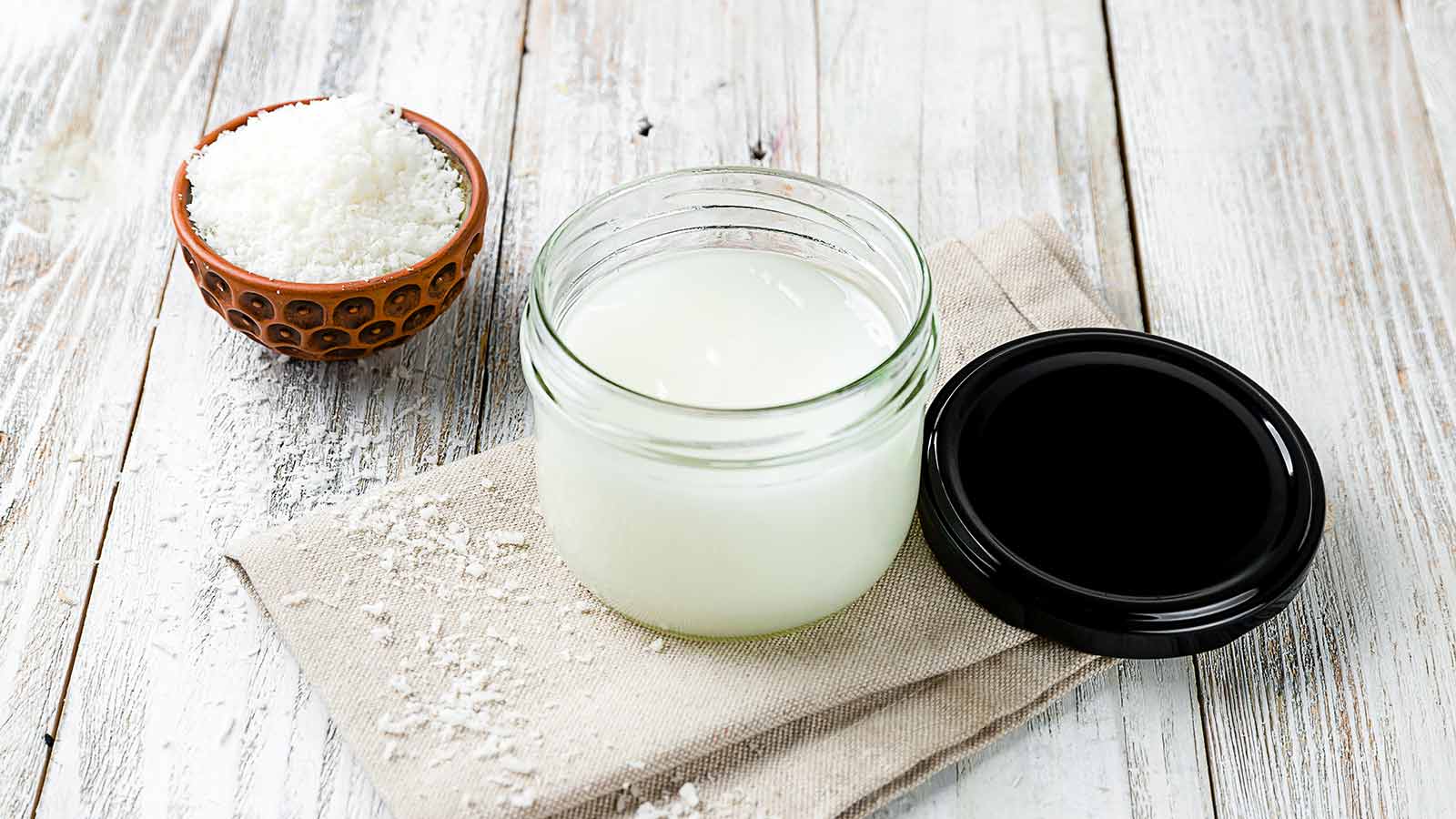
Coconut oil benefits have long been celebrated in traditional healing systems, where the coconut palm is known as the “tree of life.” Rooted in a holistic approach and embraced by many in the world of alternative medicine, coconut oil is gaining renewed attention as modern science begins to explore its potential for oral, ear, and eye health. In this article, we will discuss available insights while distinguishing promising uses from passing trends and focus solely on oral, ear, and eye applications. These are areas where coconut oil is commonly used despite limited scientific evidence. While traditionally embraced in holistic care, its broader health benefits remain inconclusive in scientific research.
Coconut oil and oral care
For centuries, Ayurvedic practitioners have promoted oil pulling, a practice of swishing edible oil through the mouth to cleanse and strengthen the oral cavity. Coconut oil has emerged as one of the most popular choices due to its taste and health effects.
Research suggests that oil pulling with coconut oil may reduce the number of bacteria in saliva. For example, a study noted that while the overall evidence remains limited, coconut oil pulling may support gum health and reduce gingivitis. However, the quality of available studies is modest and more long-term clinical trials are needed. In a separate clinical trial involving adults with gum disease, coconut oil was found to reduce harmful bacteria and lower inflammation markers in the mouth, offering early evidence that it may help ease oral inflammation.
Leading dental organizations remain cautious. The American Dental Association states that no strong evidence supports oil pulling as an effective way to reduce cavities, whiten teeth, or improve overall oral health. They emphasize that regular brushing with fluoride toothpaste and daily flossing remain the gold standard for oral care.
The University of Colorado School of Dental Medicine notes that coconut oil may help form a protective barrier on teeth that can potentially decrease the ability for bacteria to adhere to the teeth. Also, it contains lauric acid, which has documented antimicrobial and antibacterial effects. Still, they stress that oil pulling should not be viewed as a replacement for dental visits or prescribed treatments.
While current evidence may suggest that oil pulling with coconut oil shows some promise, particularly in reducing bacteria, plaque, and inflammation, research remains inconclusive. Oil pulling may be considered a gentle, low-risk practice, but it should only be used as a supplement to proven oral hygiene methods like brushing, flossing, and regular dental checkups.
Easing earwax buildup and ear health
Earwax, also called cerumen, plays an essential role in keeping ears clean. It helps trap dust and debris while moisturizing the ear canal. Sometimes, earwax builds up and becomes impacted, causing discomfort, muffled hearing, or temporary hearing loss.
While coconut oil is not always listed alongside more conventional softeners, some alternative health professionals do mention it as a gentle oil-based option, that can soften wax, and it is typically well-tolerated in people without ear injuries or infections.
Experts advise avoiding cerumen softening in infants and toddlers under three years old unless under medical guidance. The American Academy of Otolaryngology further cautions that irrigation should not be used in individuals with a perforated eardrum or active ear infections due to the risk of complications.
Ultimately, coconut oil may help gently soften earwax for some individuals as part of home care. However, if there is significant blockage, discomfort, or any sign of infection, it’s best to consult a medical provider. Ear health is delicate, and a cautious approach ensures that care remains safe and effective.
Exploring natural support for dry eyes
Dry eye syndrome occurs when the eyes don’t produce enough tears or when tears evaporate too quickly, resulting in gritty, red, or irritated eyes. In a small randomized clinical trial, researchers found that soft contact lenses pre-soaked in virgin coconut oil significantly improved tear-film stability and reduced corneal staining after just 15 minutes of wear. Coconut oil was still detectable in the tear film at that point.
However, the study did not show an increase in overall tear production, and the approach remains experimental. It also didn’t evaluate long-term safety, visual clarity, or the effects of applying coconut oil directly to the eye. While coconut oil is often promoted online as a natural remedy for dry eyes, current clinical evidence supporting its effectiveness remains limited.
Balancing tradition with modern care
Coconut oil is widely used in home remedies and alternative care, particularly for oral, ear, and eye health, but scientific evidence supporting these uses remains limited. While oil pulling may help reduce oral bacteria, it should not replace standard dental hygiene. Some people turn to coconut oil for personal care routines, but its broader health claims, such as for ear or eye health, are not well supported by research. For any targeted use, it’s best to proceed cautiously and consult a healthcare professional.
Sources and References:
Journal of the American College of Nutrition
Healthcare
Springer
American Dental Association
University of Colorado School of Dental Medicine
Cambridge University Hospitals
Seattle’s Children’s Hospital, Research, Foundation
American Academy of Otolaryngology
National University of Malaysia
Want the latest & greatest from our health blog straight to your inbox?
Subscribe today for a periodic email with our latest posts.


